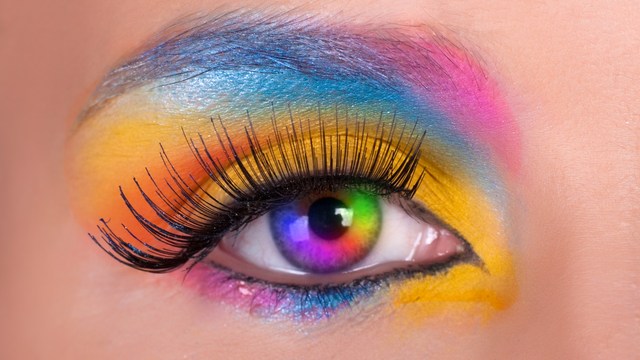 Photo: Getty Images
Photo: Getty Images
Bacteria, viruses, fungi and other microorganisms can infect the eye, causing redness, blurred vision and discomfort. The infection can affect different parts of the eye, such as how conjunctivitis affects the conjunctiva (the membrane that lines the eyelids) and keratitis affects the cornea (the clear covering of the eye).
Getting treatment for an eye infection is important, as an untreated infection may lead to serious complications. For example, patients with untreated cytomegalovirus retinitis can become blind.
The treatment a patient receives for an eye infection will depend on the cause. For example, a bacterial eye infection can be treated with antibiotics. If the cause is viral, it will go away on its own, according to MedlinePlus.
With allergic conjunctivitis, allergy medications may alleviate treatment. While warm compresses will not treat the eye infection, they can soothe discomfort caused by either bacterial conjunctivitis or viral conjunctivitis.
When making warm compresses, patients should use clean cloths and soak them in warm water. The compress should be applied when the patient’s eyes are closed.
In cases in which the infection was caused by an overgrowth of bacteria, such as blepharitis, proper cleaning of the eyelid can help alleviate symptoms and prevent the condition from occurring. MedlinePlus noted that this involves carefully cleaning the edges of the eyelids, which should occur daily. Patients may use special cleansers or baby shampoo.
Doctors may prescribe eye drops as part of the eye infection treatment. When using eye drops, patients must first clean their hands with soap and water.
To use the drops, patients should tilt their heads back and using their index finger, pull down their eye’s lower lid. Their other hand should be holding the eye drops and bring the dropper as close to the eye as they can without the dropper touching the eye — the dropper should not touch anything, as it needs to remain clean. When squeezing the dropper, patients should look up.
The American Society of Health-System Pharmacists stated that after applying the eye drop, patients should close that eye for 2 to 3 minutes, tipping their head downward.
During this time, patients should not squeeze their eyelids or blink. If a patient is using additional drops in her eye, she should wait for five minutes before administering the next one.
Patients who use contact lens should be careful with how they clean their lenses, as unclean contact lens use may result in bacterial eye infections and fungal eye infections. The U.S. Food and Drug Administration noted that patients should always wash their hands before touching their lens, replace their storage container every three to six months, and clean their lenses properly after removing them. Don’ts include using water to clean lenses, topping-off solution, using saliva to clean lenses, and reusing lens solution.
References
MedlinePlus Medical Encyclopedia. Conjunctivitis. Web. 31 January 2012
http://www.nlm.nih.gov/medlineplus/ency/article/001010.htm
MedlinePlus Medical Encyclopedia. Blepharitis. Web. 31 January 2012
http://www.nlm.nih.gov/medlineplus/ency/article/001619.htm
American Society of Health-System Pharmacists. How to Use Eye Drops Properly Web. 31 January 2012
http://www.safemedication.com/safemed/MedicationTipsTools/HowtoAdminister/HowtoUseEyeDropsProperly.aspx
Johns Hopkins Medicine. Eye Infections. Web. 31 January 2012
http://www.hopkinsmedicine.org/wilmer/conditions/infections.html
The U.S. Food and Drug Administration. Ensuring Safe Use of Contact Lens Solution. Web. 31 January 2012
http://www.fda.gov/ForConsumers/ConsumerUpdates/ucm164197.htm
Reviewed January 31, 2012
by Michele Blacksberg RN
Edited by Jody Smith





Add a Comment1 Comments
Chalazion is not as scary as it sounds, if you make use of the products offered .
January 30, 2013 - 5:58amWebsite:-http://www.eye-press.com/.
This Comment